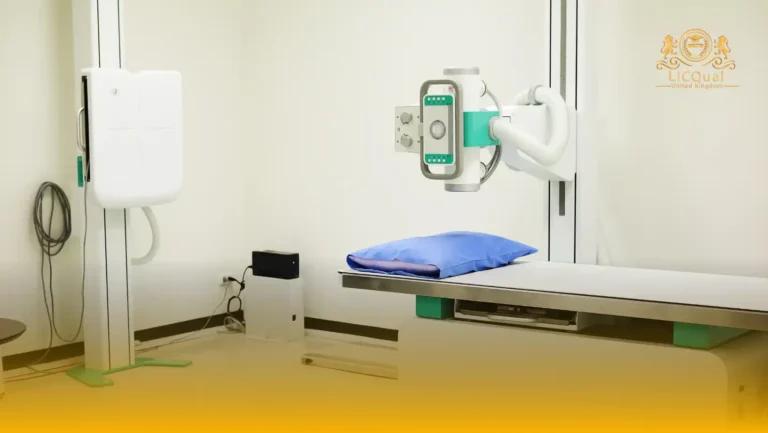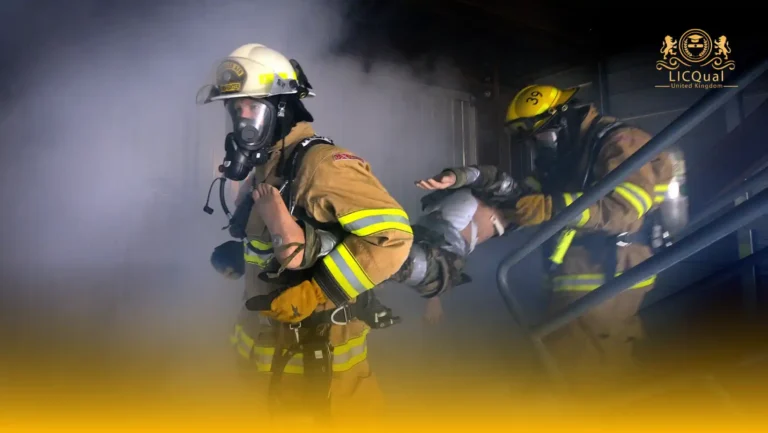The LICQual Level 3 Diploma in Pediatric Medicine (Dip Pediatrics) is a specialised qualification designed for healthcare professionals who wish to enhance their expertise in the care, treatment, and management of infants, children, and adolescents. This programme is not intended for fresh candidates but is aimed at qualified practitioners seeking to advance their career prospects, broaden their clinical knowledge, and strengthen their Continuing Professional Development (CPD).
Through this diploma, learners gain an in-depth understanding of paediatric health, covering areas such as growth and development, paediatric emergencies, common childhood diseases, clinical diagnostics, and ethical practices in paediatric care. The course is aligned with international standards to ensure that learners develop practical skills and theoretical knowledge that can be applied in real clinical environments.
The qualification is particularly valuable for doctors, nurses, and healthcare professionals who are currently working in hospitals, clinics, or community healthcare settings and wish to specialise in paediatric medicine. By successfully completing this programme, learners will be able to demonstrate advanced competence in child healthcare and contribute to improving the quality of medical services for younger populations.
Centres delivering this diploma must ensure that they have competent and qualified staff, along with the appropriate learning resources and facilities, to provide high-quality training and learner support. With the right infrastructure and professional guidance, learners can achieve meaningful progress in their careers while making a positive impact on paediatric healthcare.
Course Overview
Qualification Title
LICQual Level 3 Diploma in Pediatric Medicine (Dip Pediatrics)
Total Units
6
Total Credits
60
GLH
240
Qualification #
LICQ2200883
Qualification Specification
To enroll in the LICQual Level 3 Diploma in Pediatric Medicine (Dip Pediatrics), applicants must meet the following criteria:
|
Qualification# |
Unit Title |
Credits |
GLH |
|---|---|---|---|
|
LICQ2200883-1 |
Principles of Paediatric Medicine and Child Health |
10 |
40 |
|
LICQ2200883-2 |
Growth, Nutrition, and Development in Children |
10 |
40 |
|
LICQ2200883-3 |
Common Paediatric Diseases and Management |
10 |
40 |
|
LICQ2200883-4 |
Paediatric Emergencies and Critical Care |
10 |
40 |
|
LICQ2200883-5 |
Preventive Paediatrics and Immunisation Practices |
10 |
40 |
|
LICQ2200883-6 |
Ethical, Legal, and Professional Issues in Paediatrics |
10 |
40 |
By the end of this course, learners will be able to:
Unit 1: Principles of Paediatric Medicine and Child Health
- Explain the fundamental principles of paediatric medicine and child health.
- Conduct basic health assessments for children across different age groups.
- Analyse the role of paediatric medicine in promoting long-term health and wellbeing.
- Apply paediatric healthcare frameworks in both clinical and community settings.
Unit 2: Growth, Nutrition, and Development in Children
- Describe key stages of child growth and developmental milestones.
- Assess nutritional requirements for infants, children, and adolescents.
- Identify and manage growth disorders and nutrition-related conditions.
- Apply evidence-based approaches to support healthy development in children.
Unit 3: Common Paediatric Diseases and Management
- Identify symptoms and signs of common paediatric diseases.
- Evaluate diagnostic tools and treatment strategies for child health conditions.
- Apply safe and effective management approaches for infectious and non-infectious diseases.
- Develop preventive strategies to reduce the incidence of common paediatric illnesses.
Unit 4: Paediatric Emergencies and Critical Care
- Demonstrate knowledge of emergency management in critically ill children.
- Apply paediatric resuscitation protocols effectively in simulated scenarios.
- Develop skills for stabilisation and safe referral of emergency cases.
- Evaluate best practices in paediatric intensive and emergency care.
Unit 5: Preventive Paediatrics and Immunisation Practices
- Explain the importance of immunisation in child health.
- Apply knowledge of national and international vaccination schedules.
- Promote awareness of preventive healthcare practices for children and families.
- Assess the impact of community health education on child wellbeing.
Unit 6: Ethical, Legal, and Professional Issues in Paediatrics
- Analyse ethical dilemmas in paediatric medical practice.
- Evaluate legal responsibilities of healthcare professionals in child care.
- Apply professional codes of conduct to ensure safe and effective care.
- Demonstrate knowledge of safeguarding policies and child protection measures.
The LICQual Level 3 Diploma in Pediatric Medicine (Dip Pediatrics) is designed for healthcare professionals, students, and individuals who want to specialize in child health and pediatric care. This accredited pediatric medicine diploma is ideal for those seeking CPD accreditation, career advancement, and practical skills to manage childhood diseases, emergencies, and growth-related conditions. Whether you are already working in healthcare or planning to enter the field, this Level 3 pediatric medicine qualification equips you with the knowledge and confidence to make a meaningful impact in children’s healthcare.
1. Doctors and Medical Practitioners
- Strengthen expertise in pediatric diagnostics and treatment
- Gain advanced skills in managing common childhood diseases
- Enhance qualifications with an accredited pediatric medicine diploma
- Apply evidence-based practices in hospitals and clinics
- Earn CPD points to support ongoing professional development
2. Nurses and Allied Healthcare Professionals
- Build confidence in pediatric patient care and monitoring
- Learn strategies for managing pediatric emergencies
- Strengthen qualifications with a CPD accredited pediatric medicine course
- Improve ability to support doctors in pediatric wards and clinics
- Gain practical skills for both hospital and community-based care
3. Medical and Healthcare Students
- Develop a strong foundation in pediatric medicine and child health
- Gain a competitive edge for future healthcare careers
- Access flexible online learning while continuing academic studies
- Learn practical approaches to pediatric growth and development
- Earn a recognized Level 3 pediatric medicine qualification early in your career
4. Pediatric and Child Health Practitioners
- Enhance expertise in child growth, nutrition, and development
- Learn strategies for managing chronic pediatric conditions
- Strengthen ability to provide holistic, family-centered care
- Gain skills in ethical practices in pediatric healthcare
- Build qualifications for advanced pediatric specialization
5. Public Health and Community Health Workers
- Strengthen expertise in child health promotion and disease prevention
- Learn strategies for improving community pediatric healthcare
- Contribute to national and global child health initiatives
- Build qualifications for roles in NGOs and government agencies
- Apply pediatric medicine principles to public health programs
6. NGO and Humanitarian Workers
- Prepare for healthcare delivery in underserved or crisis regions
- Gain practical skills for managing pediatric care in emergencies
- Strengthen qualifications for roles in international aid organizations
- Learn to implement pediatric healthcare measures in resource-limited settings
- Contribute to global child health and humanitarian resilience initiatives
7. Career Changers and Lifelong Learners
- Explore opportunities in healthcare, pediatrics, and child medicine
- Gain an affordable and accessible qualification in pediatric medicine
- Build transferable skills for roles in education, research, or NGOs
- Learn at your own pace with flexible online study options
- Strengthen your CV with a recognized diploma in pediatric medicine
Centres wishing to deliver the LICQual Level 3 Diploma in Paediatric Medicine (Dip Paediatrics) must meet the following requirements to ensure high-quality training and learner success:
- Qualified and Experienced Staff – Centres must have competent trainers and assessors with relevant medical and academic qualifications in paediatric medicine, along with proven clinical or teaching experience.
- Appropriate Learning Resources – Centres should provide access to up-to-date medical texts, journals, clinical guidelines, case studies, and digital resources to support effective learning.
- Practical Training Facilities – Suitable classrooms, clinical simulation equipment, and practical learning environments must be available to deliver interactive and hands-on training.
- Robust Assessment Systems – Centres must implement fair, transparent, and standardised assessment procedures to evaluate learner progress and competence.
- Learner Support Services – Adequate academic and administrative support should be in place, ensuring learners receive guidance, mentoring, and feedback throughout their studies.
- Commitment to Quality Assurance – Centres should follow strict quality assurance processes to maintain training standards in line with international best practices.
- Access to Technology – Centres should ensure learners have access to online learning platforms, digital assessments, and e-resources to facilitate blended and flexible learning.
- Health and Safety Compliance – Training venues must meet healthcare, safety, and accessibility standards to create a secure and professional learning environment.
By fulfilling these requirements, centres can deliver this internationally recognised qualification effectively, ensuring learners gain the advanced knowledge and practical skills required in paediatric healthcare and medicine.
Assessment and Verification
All units within this qualification are subject to internal assessment by the approved centre and external verification by LICQual. The qualification follows a criterion-referenced assessment approach, ensuring that learners meet all specified learning outcomes.
To achieve a ‘Pass’ in any unit, learners must provide valid, sufficient, and authentic evidence demonstrating their attainment of all learning outcomes and compliance with the prescribed assessment criteria. The Assessor is responsible for evaluating the evidence and determining whether the learner has successfully met the required standards.
Assessors must maintain a clear and comprehensive audit trail, documenting the basis for their assessment decisions to ensure transparency, consistency, and compliance with quality assurance requirements.







